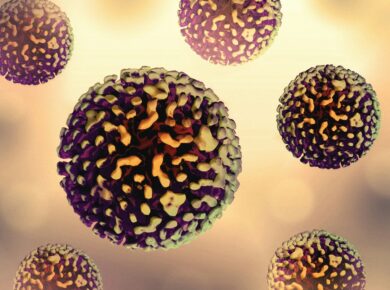Eggs, which are known as nature’s perfect food source, contain several advantages, which cover such spheres as nutritional, economic, ecological, and cultural.
Their position in human diets is not a simple product access to their palatability; eggs are packed with nutrients and advantages, which explains why consumers flock to the kitchen section to buy these products.
This breakdown shall focus on ten major functions of eggs in human life hence establishing why people across the world continue to incorporate eggs in their diets. We shall discuss 10 new nutritional ingredients you will need for your body.
1. Nutritional Powerhouse
Eggs have always been considered the powerhouse of nutrients as they contain many nutrient elements that are beneficial to the body. That is why they are a beautifully simple meta-ingredient that is packed with protein, vitamins and minerals to create a basic block of nutrition.
High-Quality Protein Source
A large egg is estimated to be roughly 6 grams of protein which is the complete protein; containing all the nine amino acids that are not synthesized in the human body. Proteins are made from amino acids and thus perform muscle repair, synthesis of enzymes and enhanced immunity. The protein that is found in eggs is fully digestible and any nutrient that is consumed in the form of protein from eggs is well absorbed in the body. This makes them very useful for anyone wishing to take in more protein for muscle building, boosting your immune system in case of an illness or recovering from surgery among other reasons.
The full complement of protein in eggs makes muscles, which makes eggs good for athletes and those who build muscles. Besides, since egg protein is highly digestible; the nutrients are easily absorbed, even those with a poor digestive tract can still derive benefits from consuming eggs.
Rich in Essential Vitamins
There is a good number of vitamins that are contained in eggs. One of them is Vitamin B12 which is essential in the formation of red blood cells and the healthy nervous system. Lack of vitamin B12 causes the formation of anaemia and neurological complications and that is why eggs are extremely useful in avoiding those disorders and also prevent bone loss and the possibility of acquiring diseases like osteoporosis.
Eggs also contain vitamin D which is again vital in the consumption of calcium and the health of bones. There is a vitamin known as vitamin D, which is referred to as the sunshine vitamin because it is formed within the skin through the sun’s rays. However, there is a problem as people in areas with less sunlight struggle to get enough Vitamin D in their system. There is nothing like eggs that can serve the purpose of filling the gap in bone strength and defending against conditions such as osteoporosis.
Also, eggs contain vitamin A which plays a role in vision, immune function and for maintenance of skin health. This makes eggs an excellent food to be included in one’s diet because they have all these vitamins in one food item.
2. Cognitive and Brain Health
Eggs are also very nutritious foods that must be included in our diets because they contain choline and other ingredients that are important in brain development.
Choline for Brain Function
It’s a fact that choline is a nutrient and eggs are rich sources of this nutrient. It is a precursor of Acetylcholine which is a neurotransmitter that is involved in memory, muscle control and mood balance. Choline is important for the normal functions of one’s brain and the proper formation of the baby’s brain during pregnancy if taken in sufficient quantity.
Investigators have found that adequate amounts of choline intake during pregnancy are beneficial in the development of a baby’s brain and decrease its risks of neural tube defects. In adults, its roles include: Sharing in the modification of peroxisomal fatty acid, cholesterol, and choline regulation of cognitive function and antidepressive effects and possibly decreasing the risk of age-connected neurodegenerative problems. It could also mean that including eggs in the diet would help to make adequate choline in the diet which is important in the proper functioning of the brain.
Joint effects of macro-, and micro-nutrients for the brain
However, eggs provide other nutrients for the brain such as the Omega-3 fatty acids and antioxidants; lutein and zeaxanthin. Omega-3 fatty acids are well known for their antioxidants and anti-inflammatory properties and help in the regulatory function of the brain. Just like it is with the eyes, lutein & zeaxanthin also have benefits on the brain by fighting oxidation stress in the body.
All these nutrients work holistically in the context of the nutritive value of eggs in brain health including memory, mood and other cognitive functions.
3. Eye Health and Protection
Eggs are rich in the nutrients that are essential in preparing the eyes to be protected against various eye conditions that are experienced as age increases.
Lutein and Zeaxanthin
Lutein, and zeaxanthin, both antioxidant elements are present in the yolk of an egg. Such carotenoids have been found to absorb the undesirable blue light and cut on the oxidative pressure within the retina and lens, hence preventing harm. Table 2: Health benefits of lutein and zeaxanthin It is well-established that lutein and zeaxanthin reduce the prevalence of age-related macular degeneration and cataracts which are major causes of vision impairment.
The consumption of eggs in diets is a natural and efficient means to improve the consumption of such beneficial antioxidants that are helpful for the improvement of eye health and the decrease of risks of vision abnormalities.

Function and importance of vitamin A to the vision
The other important nutrient that is found in eggs is vitamin A which is very important in the health of our eyes. It is a part of its major structure, rhodopsin, a protein found in the retina which allows us to have vision in poor light. Lack of Vitamin A may result in problems concerning the eyes; particularly, it may cause night blindness among persons. The consumption of eggs would also help people to gain enough Vitamin A for the proper functioning of the eyes as well as avoiding shortages of it.
4. Economic and Practical Benefits
Because of this, eggs are easily affordable and can be incorporated into many diets of people regardless of their ages, location and culture.
Cost-Effective Protein Source
It would be interesting to highlight that eggs are rather cheap, but, at the same time, represent an excellent source of protein. Among animal-based protein foods eggs are still more economical compared to meat and fish products, therefore people who would like to have high protein in their diet without necessarily having to spend most of their money will find this very useful.
This affordability is particularly relevant for such a segment of countries where the cost of eggs compared with other types of foods is much lower, but demand also can be high, for instance, in developing countries.
The use of eggs can therefore be counted economically beyond the value of the price for which they are likely to be bought. If kept well stored they can last long hence reducing the amount of food that goes to waste and therefore the overall cost of purchasing groceries. They are easy to store as they can remain in the refrigerator for several weeks making it easy to include in the daily meals for the family.
Convenience and Versatility
Eggs can be consumed in different forms in the morning and also throughout the day and night because it is used in preparing a variety of meals and dishes. They can be prepared using methods of cooking such as boiling, scrambling, frying, poaching as well as baking. It enables eggs to be included in numerous scenes making it an important staple in culinary across the globe.
Their use in baking as a binder, an emulsifying agent and a leavening agent cannot be overemphasized. It is used to hold components together, give shape to biscuits, cakes and pastries and offer structure as well as control the final texture of the food products. Because of their functional characteristics, these ingredients have become an essential component of any recipe, both home and professional.
5. Environmental Impact and Sustainability
In comparison with other animal products eggs may have a significantly lower impact on the environment should the ecological price of food production be taken into consideration.
Lower Resource Requirements
Egg production takes less space to feed, water and feed the birds as compared to animals like cattle and pigs. This is slightly lower than the resource requirement for other animal-based food items and due to this, eggs are relatively more sustainable within the framework of animal agriculture. Farming is carbon-friendly because laying hen production entails less input than breeding other livestock for meat.
Not only is the production of the eggs but also the feedstock to lay eggs efficient in this case. Compared to other animals the chickens need a lesser amount of feed to produce the same quality of protein therefore the production of eggs. This efficiency is an advantage that plays a role in reducing some negative effects on the environment, especially in food production.
Coming up on Sustainable Farming Techniques
In the recent past, there has been progress in the way that farming is done and this has enhanced the sustainability of egg production.
The feed efficiency; improved waste management systems; and correct utilization of energy in egg production have helped to minimize the impact on the natural resources.
For instance, if there is an attempt to optimize the feeds being fed to laying birds, this will improve the quality of the eggs that are produced and reduce the level of bad eggs while advancements in ways of addressing waste reduce the effects on the environment.
Another source shows how different approaches used in farming such as the use of renewable energy sources and better methods of recycling wastes would help in decreasing the effect of the same on the environment.
These advancements are well connected to the ongoing processes of increasing the sustainability of more food chains and solving environmental issues connected to agriculture.
6. Supports Food Security
Eggs are among the most effective and important ingredients that make a significant contribution to food security on a global level as it provides protein and other essential nutrients.
Addressing Nutritional Needs
Eggs are also considered to be an essential ingredient in the fight against hunger and malnutrition especially in the developing world. Owing to their protein density as well as being packed with vitamin and mineral nutrients they are important in enhancing nutrition and combating deficiency diseases.
Besides, eggs are small-scale products that can be produced locally, and therefore, can be included in foods produced on a small scale. Prime Contractor Small-scale production of eggs can be used in the food basket for people in the areas of operation because these commodities are all season and have the nutritional equivalent of meat.
Enhancing Local Food Systems
This paper argues that the production of eggs can be integrated into the local food system to increase food security and strengthen the food security of communities. Localisation of egg production enhances the availability of farm foods, leads to employment for the people and development of the economy. Therefore for the development of a strong food system, communities should support local egg farming to obtain nutritious food.
The contribution of eggs to food security makes them relevant in the fight against some of the global problems such as nutritional insecurity and inadequate access to relevant foods. They are cheap, contain nutrients and can be modified in many ways to suit the population’s needs thereby making them essential tools in enhancing human health around the world.
7. Culinary and Gastronomic Versatility
Well, it is not necessary to say that eggs are not limited only to simple preparation, in other words, eggs are flexible with many uses. They become an essential component of various cultures concerning food preparation and various new trends in gastronomy.
Diverse Cooking Methods
Various methods of cooking involve boiling, frying, scrambling, poaching, baking and many more. The versatility of eggs makes them suitable for different meals varying from simple meals like breakfast to complicated meals. The process of cooking develops different flavors and tenderness of the egg which makes eggs have a variety of ways in which it can be prepared.
Indeed eggs as well as being important in various types of meals especially those with high protein content are used in sweet dishes. They are used to add to the texture as well as structure of cakes, cookies, and pastry products. Since they enable ingredients to merge and offer support in the creation of smooth, rich textures in such products as sauces, custards, and dressing.
Global Culinary Traditions
Eggs are considered to be used regularly by many societies across the world in their preparation of foods. In French baking, they are involved in the preparation of classic dishes like quiches, omelettes, soufflés and many more. Some of the typical examples of using eggs in Asian kitchens are ramen, sushi and the famous egg drop soup. In both cultures the use of eggs is apparent and varied; thus, it can be said that eggs play an essential role in many national cuisines.
This paper outlines the importance of eggs as an ingredient in the culinary context of their versatility regarding the culinary attributes of flavour, texture, and appearance. Because of its versatility and functional characteristics, these products are a precious addition to any kitchen in the world.
8. Cultural and Symbolic Significance
We have been able to present eggs in this paper not just in the social aspect but in the general cultural and even symbolic value.
Traditions and rituals can be symbolic as an assemblage of objects and operations
Eggs refer to several cultural and religious associations such as birth, fertility and regeneration. For instance, during Easter children are associated with eggs about resurrection as the symbol of new life and, the arrival of spring. These are symbolically observed through egg painting, egg tapping, and even the sharing of sweet initialised chocolate eggs.
To some of the cultures, eggs serve as symbols of good fortunes and fertility during births, marriages and other life events and milestones. This feature of eggs also means that these items are used in cultural rites and ceremonies, in which their use is associated with certain stages in life.
Cultural Cuisine and Festivities
In poultry, especially chicken and its offspring, the egg is used in most cultural trays and celebrations globally. Some main products in French cuisine remain very popular among people, for instance, eggs as a main ingredient for omelettes, crème brûlée, etc.
In Asian restaurants, they are used in the preparation of dim sum and tea eggs. Every culture has its specific cooking methods and recipes that are the result of the importance of eggs in multicultural cuisine.
The essays also reveal the cultural and symbolic meaning of eggs showing the reader that the eggs are more than just food and nutrients.
9. Advances in Health Research
Recent studies further add to the body of knowledge regarding the positive effects of eggs on human health, regarding nutrition and otherwise.
Re-evaluation of Dietary Cholesterol
Some of the latest research has shed new light on the fact that the consumption of cholesterol in foods and the cholesterol in the blood is not directly proportional.
What has been noted is the fact that while consuming eggs, the effect it has on the overall blood cholesterol for most of the population is negligible as compared to the effects brought about by saturated fats. This has therefore given new dietary guidelines which allow for the intake of eggs irrespective of the cholesterol intake.
The new study on dietary cholesterol emphasizes the need for a more complex view of the effects of diets and different nutrients and it underlines the role of dietary patterns and lifestyles.
Health Benefits that could be pursued for further In-depth study
Scientific analysis of other aspects of eggs that may have an impact on one’s health does not only look at cholesterol levels. It is the subject of research to discover their usability for chronic disease prevention, weight loss, and general well-being. For instance, there have been studies to the effect that the nutrient-rich edibles in eggs are good for the heart, for the metabolism, and for satiety and weight regulation.
As research continues to uncover a correlation between eggs to good health, a clearer perception of the worth of eggs is acquired, as is the formulation of sound nutritional policies.
10. Sustainability and Future Prospects
Due to these problems, eggs which are rich in nutrients and largely environmentally friendly could become a viable solution to these problems facing the world in the future.
Sustainable Production Practices
The egg production business is sustainable because of changes and advancements in strategies and methods which are used in farming.
The availability of efficient feeds that can help improve feed conversion rate, effective ways of waste disposal, and the use of energy in the process affect the environment lightly.
For instance, some changes in formulated diets may increase the nutritive value of eggs; likewise, proper management of wastes may reduce pollution hazards.
Evaluating and handling farming production resources including the renewable energy sources and recycling methods of wasting materials are congruent to the notion and solutions to food sustainability and environmental issues affecting farming.
Future Prospects and Innovations: Egg production in the future has so much hope of improving on the aspects of sustainability and efficiency.
Additional efforts in search for other feed sources, advances in farming practices, and new methods of production create a possibility for even further lowering of these intensities and the use of resources.
Furthermore, there are possibilities to create new egg-derived products and utilization perspectives in response to the world’s food problems and changing diets.
The current emphasis on sustainable development and innovation in the production of eggs once again points to this product as capable of being an integral part of a more sustainable food chain.
Conclusion
Still, the discovery and enjoyment of the many aspects of eggs mean that the foodstuff has its rightful place in our diet and food culture that is both functional as well as symbolic. For people to savour in their meals or use in various dishes or combinations, eggs remain a unique and useful food which benefits humanity in many ways.
This just proves that they are timeless as they are staple food in many cultures for a very good reason, making them a priceless addition to our diets. You can still learn more about health and medicine when you read here.










